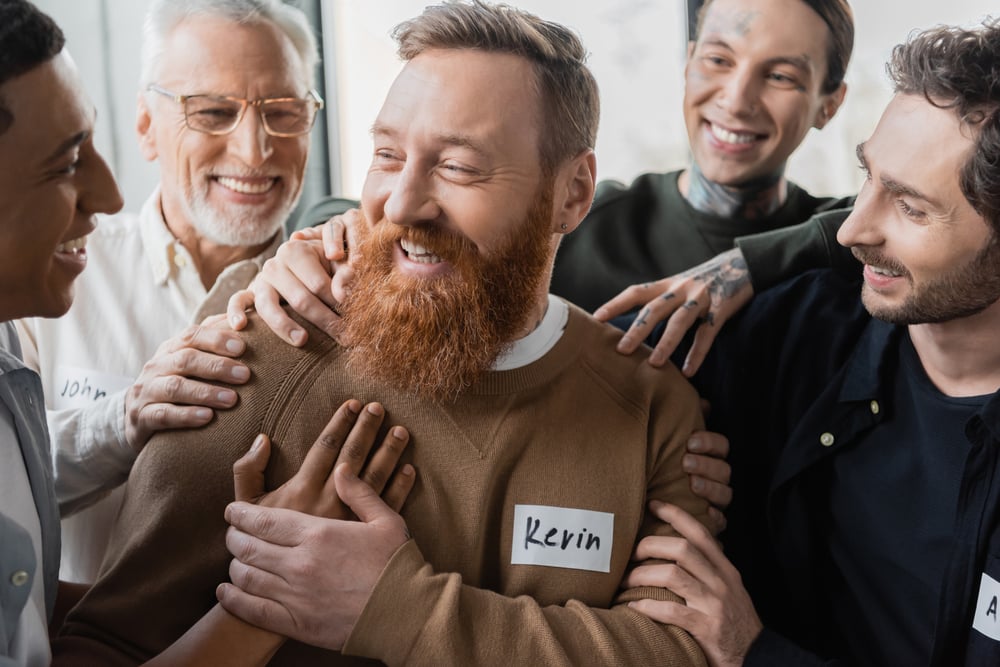
Addiction and mental health recovery are difficult processes. Anyone who goes to treatment is committing to being vulnerable, so it’s important for every resident to feel safe at Sabino. We also incorporate integrated therapy into our treatment program. You can find emotional safety while learning how to manage stress and trauma symptoms during therapy sessions. When paired with psychotherapy, integrated therapies like yoga and equine therapy provide a varied and holistic treatment plan.
Recreation has been shown to help people recover from substances. We incorporate recreation as part of our treatment because we know that play is a powerful healing tool: it helps alleviate symptoms of depression, build social connections, heal our bodies after injury and release stress. At Sabino, you will have the opportunity to rediscover who you are and what you like. When you are actively in addiction, those substances consume your life and many people lose sight of who they really are. With recreational time in treatment, you can work with therapists to create a continuing care plan that incorporates your interests and helps you find other people who share those interests
Cravings and Triggers
Cravings are one of the most challenging aspects of early recovery. Studies have shown that time spent in treatment correlates with success and the likelihood of staying sober. The time you’ll spend in treatment is a small fraction of your life. The job of a treatment facility is to give you the tools you need to live a happy, full, sober life. In order to do that, you need to be fully equipped to handle any stressors, cravings, or triggers that will come up in life.
It’s not easy to stay sober, particularly when faced with temptation and stressful situations. In order for you to have the best chance of success in recovery, you need to be prepared for these situations. Treatment facilities help provide you with the tools you will need to build on your sobriety.
Craving is a symptom of addiction and the first thing you will learn in treatment is how to manage them. The important thing to remember is that there’s no need to act on your cravings right away. Simply taking a step back and thinking about how you feel will often be enough to make your feelings go away. One way to help handle these cravings is to redirect your attention and energy. Instead of falling back into old habits to manage your stress, you’ll learn healthy coping mechanisms that include meditation, yoga, walking, and other recreational activities.
Recreation and Hobbies in Recovery
In early recovery, one of the most difficult things to deal with is boredom. When you go home and are beginning your life in recovery, you’ll have to deal with boredom and the temptation to fall back on old habits. You may not know what to do, who to call or what to talk about. You might feel isolated without a new friend group or daily routine. It will be tempting to reach out to old friends who you used substances with or find a destructive way to fill your time.
Recreational activities and hobbies give you a purpose and a structure to your day. You’ll have the opportunity to pursue new experiences outside of your addiction, in healthy ways that are actually enjoyable for you! Beginning a hobby is often helpful for those struggling with anxiety and depression in recovery, as well as those who want to develop their interests or explore new ones.
Recreation and play are a big part of recovery. It’s important to have fun! Try your hand at new activities that you may enjoy. Some common recreational activities include:
- Golf
- Pickleball
- Yoga
- Fitness
- Going to the gym
- Fitness classes
- Swimming
- Dance classes
- Pilates
- Barre
- At-home fitness videos
- Hiking
- Walking
- Running
- Crossfit
Fitness as a Tool in Recovery
In any addiction, recovery means not only the ability to live without substances but also living the life you want to lead. For some people looking for a way to fill their days with excitement and adventure, fitness can be an excellent way to develop new skills and plan for a future filled with health and vitality.
Fitness is both a recreational activity and a way to manage stress for those in recovery. It releases dopamine, helps with self-esteem, and teaches you how to manage stress without chemicals. Another benefit of fitness is that it’s a great way to set small goals for yourself. If you take up lifting weights, set achievable goals like doing an extra rep or increasing your weight. These small achievements help you stay interested and give you hope for the future of your recovery.
In addition to being a great way to relieve stress, fitness is a great recreational activity because it creates new positive habits. By setting a goal and achieving it through hard work and dedication, you are creating new positive behaviors that can affect your life in recovery. You’ll find yourself looking forward to going to the gym each day or taking daily walks. You’ll feel empowered by becoming stronger and more confident each day.
We believe that all of our students are unique and that an individualized treatment plan is the way to reach your full potential in recovery. By incorporating recreational activities like pickleball, art therapy, horseback riding, adventure therapy, and reading into our treatment program, we hope to empower anyone who comes to Sabino to continue discovering what brings them joy and living a full, happy life in recovery.




